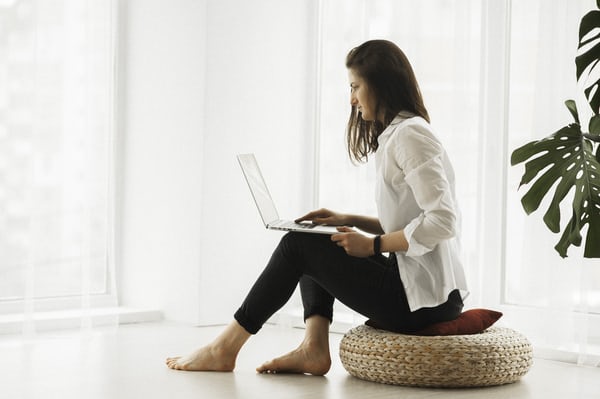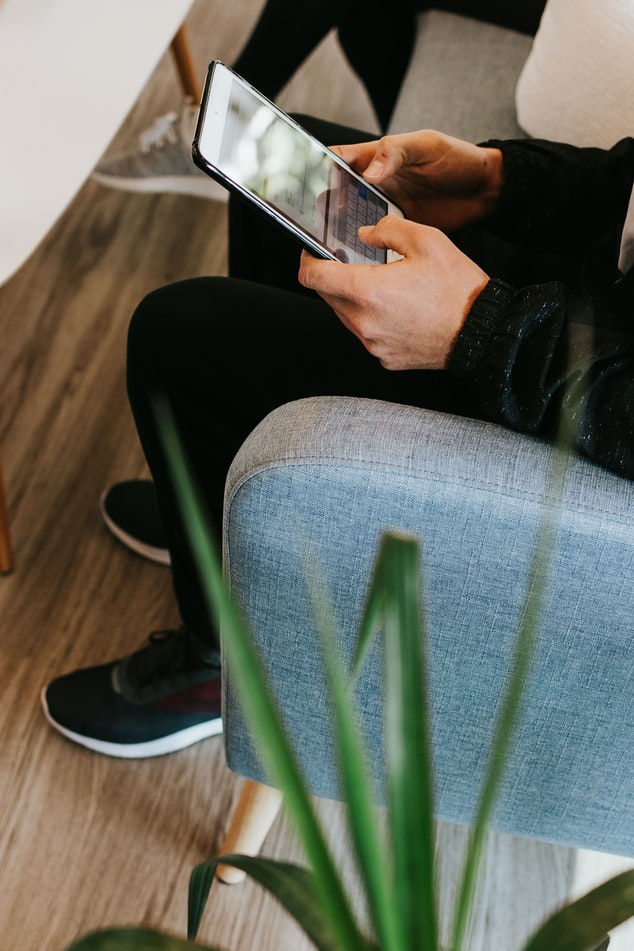How to Make the Most Out of Your Teletherapy

Social distancing means no face-to-face sessions. Here’s how to get the best outcome from your online interactions with your mental health therapist.
Talking with a mental health professional is always useful. Not only does it help persons with issues such as depression, anxiety and break-up blues, but it can be very beneficial during times of intense stress, such as the current pandemic.
With social distancing and fear of infection, we can’t just walk into a therapist’s office. That’s why teletherapy is becoming more popular than ever.
“Research indicates that teletherapy is as effective as face-to-face physical therapy. It allows you to get support while following social distancing guidelines or quarantine restrictions,” says Sushant of Practo, India’s most popular platform that provides mental health and other healthcare resources for clinics and patients. “If you are noticing increases in stress and anxiety, it might be a good time to get support via a teletherapy option.”

Teletherapy is becoming the norm nowadays. Mental health professionals are now easily accessible online via video and phone for virtual sessions.
Here are some useful tips on how to use teletherapy to your advantage for the best results:
There will be an adjustment.
If you’re used to visiting your therapist’s office, suddenly opening up to them in your bedroom might be a little strange. At first, you may find it a little difficult to share your feelings with a professional over video chat. This is a normal reaction, said Dr Vidyasagar, a therapist at Hope Trust.
“You may feel awkward or uncomfortable at first talking to a person on a screen, or with your therapist’ seeing’ your domestic space,” Vidyasagar said. But over time, you will get more comfortable with it.
Establish your goals in the first session.
Make your first teletherapy session about laying out your goals. Try to be specific about what you want to achieve in the process. If you are already in therapy and are shifting from physical to online, check your progress and where you want to go from there.
For those who typically go to therapy in person, your first teletherapy appointment is an excellent time to check in on your goals and progress. If you’re new to treatment entirely, expect your first session to lay out what you want to achieve with the process.
“Starting the therapy can often be the hardest part, but if you have some clarity about what to expect, it can soon become comfortable”, says therapist Rajeshwari. can often be the most challenging part, but it may provide some comfort if you know what to expect going into your first session,” she said. “I usually start each session by making sure the client is feeling comfortable, before working collaboratively to formulate a treatment plan and review different methods to help address their issues.”
Get dressed as if you’re going for a regular appointment.
You can expect the best outcome if you treat teletherapy like any other appointment.
Maybe you choose to go to a different room or a private area of your home, dressing up as if you’re going out for a physical appointment. This will put you in an appropriate mood and enable you to give due respect to the interaction.
The legendary actor of Hindi cinema, Dev Anand, was always seen well-dressed and clean-shaven, as if he were going in for a shoot. When asked about it, he replied, “When I dress well, I am telling the other person that he or she is important to me and I am giving respect and love to them”.
Look at teletherapy as a way to socialise while social distancing.
In these times of isolation, due to COVID-19 restrictions, view online therapy as a way to get some connection and understanding. Humans are social beings. We need other people to connect with. Treat teletherapy as a way of feeling connected with another human and getting the care we may need in these anxious times.
Humans are social beings. We need other people to connect with. Treat teletherapy as a way of feeling connected with another human and getting the care we may need in these anxious times.
Sometimes, we are away from our loved ones, and teletherapy is a way to nurture our relationships through hard times. Your therapist can help you keep your relationships healthy.
Minimise distractions.
One of the important ways to get the best out of your online session is to minimise distractions and be in a quiet place. Try wearing headphones during the session, put your phone in silent mode, and mute all notifications, including on your laptop.
And, perhaps most importantly, make sure you’re in a quiet and private space. If you are living in a tiny apartment and sharing with roommates, you can opt to go for a walk while you talk with your therapist. There are instances of clients who lock themselves in bathrooms while interacting online with their therapist!
“It is essential for clients to make sure they have a private spot to focus, engage and express so that they can have the most effective and fruitful therapy sessions,” Rajeshwari said.
Find the most convenient time.
With the ‘work from home’ scenario, you have more flexibility with your schedules. Please make the most of it.
“Convenience is one of the biggest benefits of teletherapy. It’s also much easier to access,” Dr Sagar said. Clients don’t have to take off from work and travel long distances through traffic. “A patient can pick a time and mode of communication ― phone, text, video, etc. ― that fits in with their schedule and personal communication style. Something that isn’t usually possible with traditional therapy sessions and can be a huge factor in discouraging people from seeking support,” he said.
Hope Trust therapists try to schedule sessions during off-hours or weekends to suit the convenience of working clients.
Be brutally honest in your sessions.
You’re not helping yourself if you hold back during therapy. Express your emotions in the same way you would during an in-person appointment.
“By being rigorously honest with the therapist, whether in person or via Zoom, WhatsApp or similar video platforms, the treatment will become beneficial. A trained therapist will make you feel listened to and respond emphatically”, said Medha, another therapist at Hope Trust. assuming “The therapeutic relationship will emerge similar to how it does face-to-face.”
Find out what pace works for you.
Therapy is not one-size-fits-all. Do you need to talk with someone once a week? Twice weekly? Maybe several times a week? Figure out what works best for you, and schedule your appointments accordingly.
“Patients expect their teletherapy program to suit their personal needs, whether they need consistent, weekly engagement or only one-off sessions when they feel an urgent need to speak with a specialist. It all depends on their preference and what will give the best results”, says Medha.
Remind yourself that therapy is hugely beneficial right now.
We’re dealing with absolutely unprecedented times, something none of us imagined. A significant number of individuals are stressed, feeling depressed, lonely or insecure. It’s OK to feel such negative emotions.
Hope Trust has a team of qualified and experienced therapists who can help you navigate through these unusual times. They are just an appointment away. Wherever you are, whatever you’re going through, support is available. Reach out today.
Call 90008 50001 or visit our website: www.hopetrustindia.com